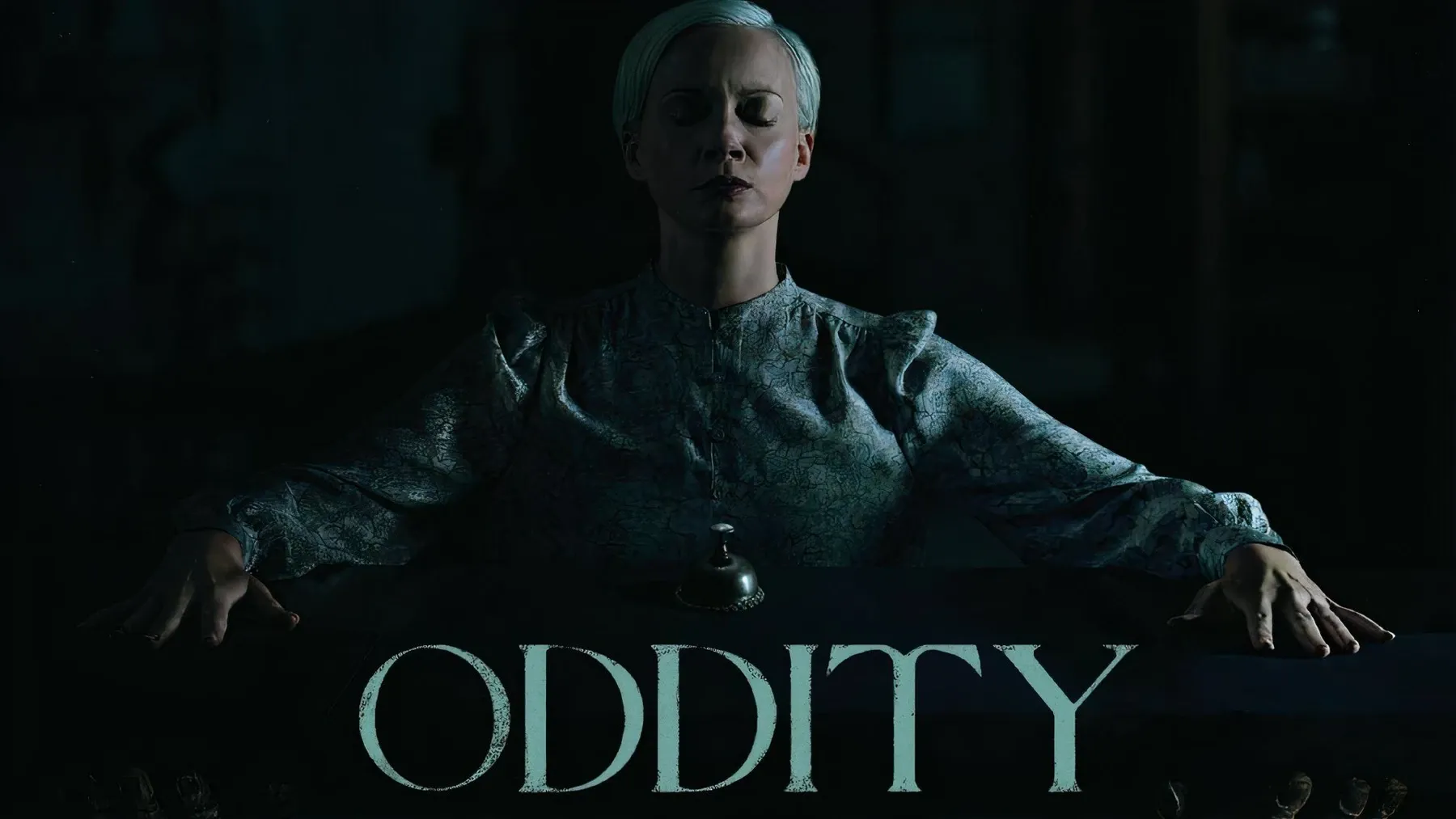Oddity, written and directed by Irish filmmaker Damian McCarthy, knows exactly what it is, and plays to those strengths beautifully. This is a classic horror story, one with elements of the strange, biblical morality plays seen in Tales From the Crypt comics. At times, it's very droll in its awareness. At others, it's terrifying in the things it shows – and doesn't show – to us.
What makes these traditional elements so compelling is how McCarthy refuses to treat his audience like idiots. He trusts that we've seen a horror film or heard a scary story before this, and if we haven't, we know enough to fear the dark.
The terrors here are made up of primordial elements: Dark rooms, hard angles, strangers in the night, and the sense that there's an entire world we can't see or understand. The house where most of the action takes place is a built like a fortress, meaning that it feels incompatible with a warm and happy home. Each room is a long and suffocating space where you can't see around the corner. Outside is nothing but a vague notion of a countryside and a distant town a long drive away. It feels like it's always raining.
One night, a young woman, Dani (Carolyn Bracken), stays late at this new home, renovating it with a vision for the future. Her husband, Ted (Gwilym Lee), is working late, as he always does. Suddenly, there's a knock at the door, and a wild-eyed man, Olin (Tadhg Murphy), demands to be let in. He claims there's someone else in the house, and that Dani is in danger.
A year later, Dani is dead, murdered that fateful night by Olin, and Ted has begun to move on. Dani's twin sister, Darcy (Bracken again), isn't as easily convinced. She's blind to this world, but connected to another in ways even she doesn't understand. When she touches an item, she can see the history of its owner reflected to her. She believes Dani's death wasn't as clear cut as the story claims, but how to prove it?
McCarthy moves his pawns around the board with precision, and there's a sense of both dread and joy in watching the inevitable come to pass. This isn't a film that makes you guess the outcome, we bought a ticket because we want certain things to happen. Instead, it toys with the audience by giving us just enough information to let our imagination run wild. We don't know there's something lurking in the shadows, but the thought that there might be is enough.
Here, again, McCarthy proves himself a smart filmmaker: Oddity's camera is stationary for most of the runtime. When it does move, it almost feels unnatural. Like we've lost the only solid footing we've had. It also allows us to play editor in our head. The meticulous blocking and set design let us choose the scares for ourselves, especially when it's entirely self-inflicted.
When Oddity finally delivers on the scares, they come in rolling waves one after the other. Even the jump scares are classy. One callback to an iconic image from Twin Peaks is simple and mundane, yet it terrified me so entirely, I felt my hands shake.
At its best, Oddity is a masterclass in sustained suspense. The whole time, we know something is wrong, and we can't vocalize what that is. Horror, as a genre, is the absence of the rules and logic that helps us feel safe. By understating the fantastical elements of his world, McCarthy opens the door for uncertainty and doubt, which gnaws at us until the devastating and quietly horrifying final scene, where his work finally pays off.













